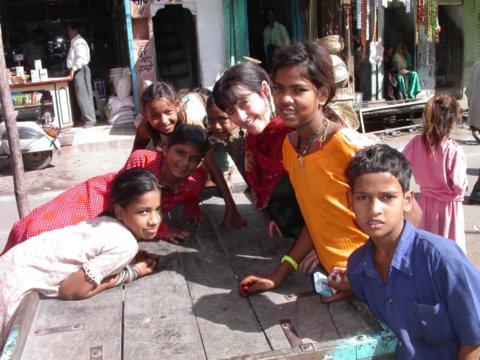 As children we are encouraged to work hard and achieve well. We are rewarded for our achievements and even given some ‘healthy’ competition to encourage us further. If we don’t do well in class we are often told we need to buckle down and work a little harder. One of my clients sent his children to a particularly strict and regimented school believing this would make them strong and successful.
As children we are encouraged to work hard and achieve well. We are rewarded for our achievements and even given some ‘healthy’ competition to encourage us further. If we don’t do well in class we are often told we need to buckle down and work a little harder. One of my clients sent his children to a particularly strict and regimented school believing this would make them strong and successful.
Having said that the happiest children I have known in my career as early childhood educator and parent of five are often the ones who are supported in discovering and learning at their own pace and in their own way. They are the ones who are seen as unique individuals and who are guided to learn along the lines of their interest, strength and passion. One of the reasons, I believe that we ‘push’ our children to succeed in sport or maths or being popular is because we have not developed true compassion for ourselves.
Self-compassion is the foundation stone on which all other virtues can grow. Although some of us may worry about what will be and others are concerned about what is going on right now, what we all need to develop is a gentleness towards ourselves and a deep abiding kindness to our idiosyncrasies. Imagine a world where there are no shoulds. Imagine your day if you never felt a have to or an ought. Where guilt did not exist. Where we learned from our mistakes with joy and celebration. Where we valued our differences and treasured our similarities.
We push our children because we were pushed. We demand from our children because we think we want the best for them but we really want the best for ourselves. Can you live with a child who prefers to draw rather than to write? Can you support a child who loves to daydream rather than kick a football. Can you appreciate your child Being who she is rather than Doing what you think is best. Some of us can. Some of us find this very challenging.
Many years ago our daughter went to drama classes. The teacher always ended the class with an affirmation. Instead of saying goodbye each child stood in front of the teacher and made a statement
“I am wonderful the way I am.”
Or “I am always enough,”
Or “I am always the best I can be.”
When each of us can honestly say those sentences and believe them with all our hearts then and only then can we open our hearts to accepting our children as being perfect exactly as they are.

Comment (1)
Rebecca
That is really beautiful. Thank you for reminding me. Love Rebecca